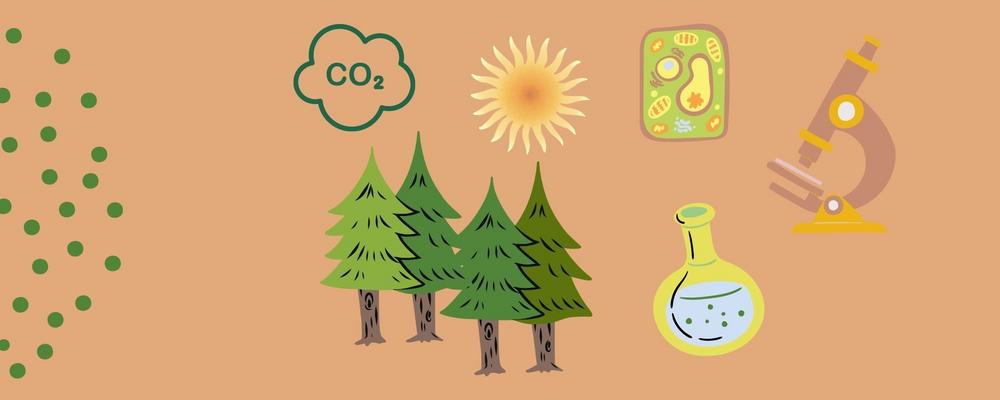
Plant ecology, physiology & environmental science
In this research area, "PEPES" study how plants and algae respond to climate change, pollution and land use and management from the gene to ecosystem scales and in climatic zones ranging from arctic, boreal to tropical. Our research also explores how responses of plants and algae affect the regulation of climate, production of food, timber and biofuel, biodiversity, and human exposure to pollen and pollutants. We have expertise in gene-modification, photosynthesis, manipulative field experiments, process-based modelling, and national pollen inventory.
Plant cell and molecular biology
Here we focus on fundamental aspects about growth, responses to environmental stress and climate change, and production of secondary metabolites. Topics being pursued include functional genomics of marine diatoms, regulatory mechanisms in plant and algal photosynthetic membranes, and mechanisms for acclimation to abiotic stress in crop plants.
Plant ecology and environmental science
We study how climate change, air pollution and human land use and management affect plants and terrestrial ecosystems ranging from the arctic tundra to boreal and tropical forests. We also explore the consequences of vegetation responses for the regulation of climate, biogeochemical cycles, and human exposure to pollen and air pollutants.
In a world of rapid environmental change, we seek to address burning questions for which research is needed to understand future environmental risks and to design efficient mitigation strategies:
- How does climate change and air pollution affect ecosystem processes such as biomass production, nutrient cycling and water economy?
- What are the climate feedbacks driven by land use and management?
- How will global warming change the composition and diversity of arctic and alpine ecosystems?
- What will be the future of tropical montane forests in a warmer and drier climate?
- How does vegetation affect the urban environment including air pollution and local climate?
- Will climate change alter exposure to allergenic pollen and interact with air pollutants to worsen human health problems?
We conduct fieldwork in different parts of the world, including the Arctic tundra as well as ecosystems in the boreal, temperate and tropical biomes. Experimental approaches include controlled, ecologically realistic field experiments with manipulation of air pollution, carbon dioxide, temperature and nutrient supply. We also explore plant acclimation along natural environmental gradients. Furthermore, we use process-oriented models to assess and predict the long-term and large-scale consequences of anthropogenic impacts on terrestrial ecosystems. Last but not least, we do data synthesis and meta-analysis.
Researchers (PI:s)
Mats Andersson
Henrik Aronsson
Anne Bjorkman
Mats Björkman
Adrian Clarke
Åslög Dahl
Nestor González Roldán
Annemieke Gärdenäs
Eduardo Infantes
Håkan Pleijel
Lina Rasmusson
Cornelia Spetea Wiklund
Lasse Tarvainen
Ana Tronholm
Johan Uddling
Göran Wallin
Angela Wulff
Daniel Zuleta

















